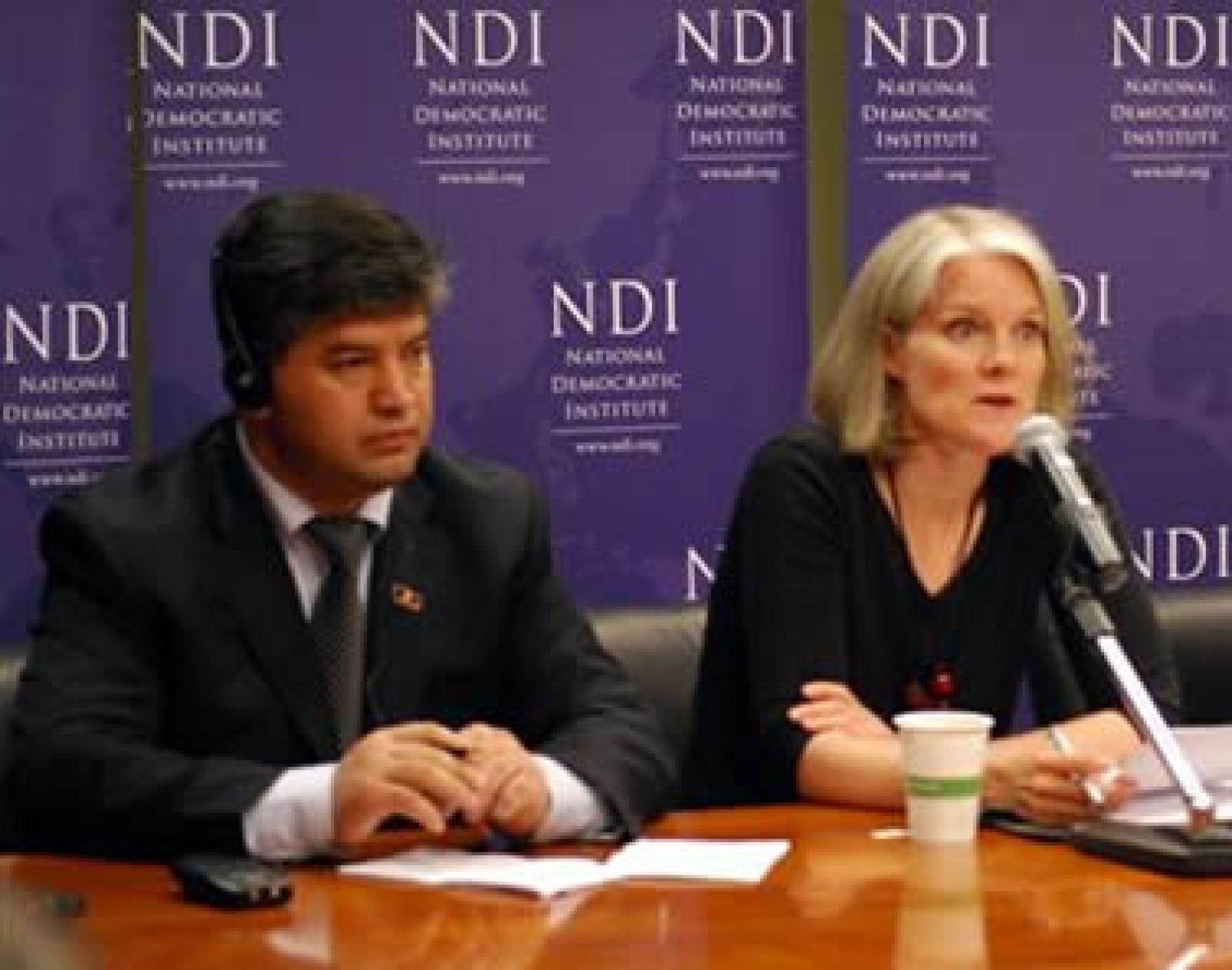
SHARE
Violence between ethnic Uzbeks and Kyrgyz last June in the Kyrgyz cities of Osh and Jalalabad left 470 dead, thousands injured and 400,000 displaced. With the goal of deterring future violence, a delegation from Kyrgyzstan recently affirmed the government’s commitment to carry out the recommendations of an international commission to defuse tensions and promote reconciliation.
"There are systematic reforms that our government is ready to undertake," said Mira Karybaeva, head of the Department of Ethnic and Religious Policy and Interaction in the office of the president, at a May 24 roundtable discussion hosted by NDI. In the coming months, she said, the government will take a strong stand against extreme nationalism, impartially investigate all crimes, promote minority rights, provide access to media in multiple languages, and establish a truth and reconciliation commission to promote inter-ethnic dialogue.
The delegation, which included a member of parliament, Kyrgyz presidential advisors on legal policy and ethnic and religious policy, and a human rights expert, was in the U.S. to solicit feedback from nongovernmental organizations, academics, think tanks and the U.S. government on the recently released report of the Kyrgyzstan Inquiry Commission (KIC).
The KIC, an independent, international group, was created at the request of Kyrgyzstan President Roza Otunbayeva and led by Kimmo Kiljunen, special representative of the Organization for Security and Cooperation in Europe Parliamentary Assembly for Central Asia. Its mandate was to investigate the facts and circumstances of the violence, determine responsibilities and make recommendations that contribute to peace and ethnic reconciliation.
The KIC report, based on hundreds of interviews and months of analysis, places significant responsibility on the interim government of Kyrgyzstan that came to power in April 2010. The government failed to prevent or swiftly respond to the violence, the report said, but it stopped short of blaming either ethnic group for starting the conflict. It also outlined a comprehensive set of recommendations for the government that, if implemented, would help to defuse tensions and deter future violence.
These recommended reforms would also strengthen democratic institutions and processes. A special intergovernmental commission has already been established to oversee the pursuit of judicial, cultural and political reforms. "The parliament is ready to look at any laws that improve our nation," said Ravshanbek Sabirov, head of the delegation.
While members of the delegation endorsed many of the report’s recommendations, they took issue with some of its findings. "This was not simply an ethnic conflict," said Karybaeva. "We must look at both the ethnic and political context of the situation," she cautioned, referring to the April 2010 ouster of authoritarian President Kurmanbek Bakiev, which led to the installation of a politically weak but democratically-oriented interim government. "The ethnic conflict was a tool implemented by political figures [who were hostile to the new government]," concluded Erkinbek Mamyrov, head of the Department of Legal Provision in the office of the president. "We are confident that the violence will not recur if we learn our lessons."
Related:
- Comments by the government of Kyrgyzstan in response to the report of the KIC»
- Independent monitors conclude Kyrgyzstan parliamentary elections were democratic and transparent»
- In Kyrgyzstan, women poised to take leadership roles in political parties»
- NDI Vice Chair Daschle offers encouragement and recommendations on Kyrgyzstan's democratic reforms»
Pictured above: Ravshanbek Sabirov (l) and Laura Jewett (r)
Published June 9, 2011


